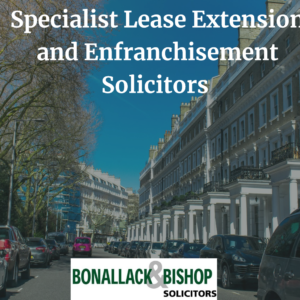Lease extension solicitors – your solution to short lease problems
Don’t let the fact that the flat you are considering buying has an 81 year lease on it make you completely rule out purchasing it. The critical amount of time left on a lease is 80 years. If the lease has below 80 years remaining the ‘marriage value’ component of the premium payable to the freeholder for the lease extension will add significantly to the cost of that extension – we are talking a few thousand pounds here at the very least.
From the day that the remaining term dips under that critical 80 year period, the ‘marriage value’ will steadily increase as the length of the lease decreases – so extending the lease should ideally be done before it drops below that 80 years point.
Click here to read more about Marriage Value and the government’s 2025 proposal to abolish it
Got a lease extension question? Call our specialist solicitors on FREEPHONE 0800 1404544 for FREE initial phone advice – with no strings attached.
The abolition of the 2 year rule
Life has become much simpler for any leaseholder buying a property with 81 years left on the lease. That’s because on January 31, 2025, the so-called “2 year rule” was abolished. So no longer does any leaseholder have to wait 2 years from the date they bought the property to apply for a statutory lease extension. That right is now theirs from day 1 of ownership.
And the abolition of the two-year rule makes no difference to an informal lease extension i.e.approaching the freeholder to extend your lease on a voluntary, informal or private basis i.e. without having to make a formal S42 application under the Leasehold Reform, Housing and Urban Development Act 1993 (as amended). The potential downside to this option is that the freeholder might refuse outright, or agree and then change their mind, or finally they might agree but impose an inflated premium and disadvantageous lease conditions on you. Fortunately with the abolition of the 2 year rule, there is less scope for the freeholder to do this – as the alternative – the formal lease extension – is available immediately
Additionally, with no legally binding timescale to comply with the freeholder might agree to extend the lease and drag their feet until the lease drops further.
Click here to read more about the voluntary lease extension
And there’s more good news with this formal statutory route – as soon the section 42 notice is served by the vendor, the lease effectively freezes – it stops getting shorter during the application process
Want help with your lease extension? Contact us today
One of our specialist lease extension solicitors will be able to advise you in detail on what is involved in extending the lease on a property with an 81 year lease.
Our team can advise you wherever you live in England and Wales and we don’t even need to see you – taking your instructions by e-mail, phone and Zoom video:
- Just call us on FREEPHONE 0800 1404544 for a FREE initial phone consultation and a FREE quote for your lease extension
- Complete the contact form below

